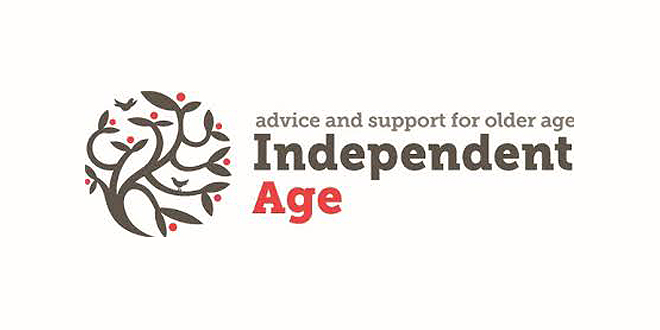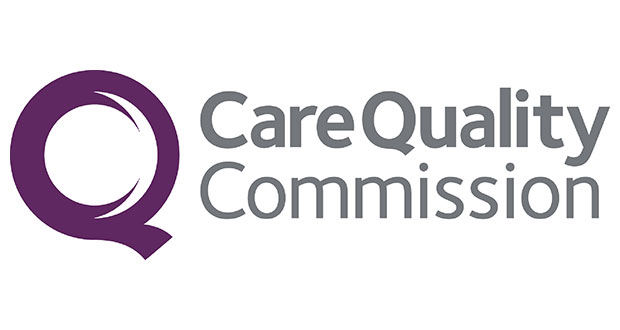Industry Responds To State Of Care Report From The Care Quality Commission
Industry bodies and professional’s have responded to the care quality commission’s (CQC) annual assessment of the state of health and social care:
 Neil Tester, Director of The Richmond Group of Charities, said:
Neil Tester, Director of The Richmond Group of Charities, said:
“Last year the CQC highlighted that the quality of the care and support people receive depends on where you live and how well your local NHS and council services work together. This year’s report shows that the same is now true about access to services.
“This has a huge impact on people living with multiple long-term conditions, who need a wider range of services and see the gaps and duplication more often than others. When you’re older and have multiple needs, as most people over 65 do, the problems caused by a lack of connected services get even sharper. That’s why we’re calling on Matt Hancock to give the CQC clear authority to focus on people with multiple conditions in its next wave of local system reviews.
“The reviews the CQC has undertaken so far have identified vital issues and helped services begin to join up differently across traditional divides. As the NHS and councils aim to work more closely together to make good use of new resources, the Government must ensure that the CQC reviews it’s now asking for provide a true picture of what it’s like for older people to struggle against the unintended barriers services put in the way of people with multiple long-term conditions. The changes that will spark will also benefit the working age majority of people with similar needs.”
 Skills for Care Interim CEO Andy Tilden said: “This timely CQC report shows the number of adult social care organisations rated as good has stayed roughly the same at 80%, despite the significant pressures they face, but it adds to the sector wide call for a long-term sustainable funding solution especially as some employers are now exiting our sector impacting directly on people’s lives.
Skills for Care Interim CEO Andy Tilden said: “This timely CQC report shows the number of adult social care organisations rated as good has stayed roughly the same at 80%, despite the significant pressures they face, but it adds to the sector wide call for a long-term sustainable funding solution especially as some employers are now exiting our sector impacting directly on people’s lives.
“We continue to work with the CQC and other partners to create a skilled. knowledgeable and values driven workforce so people can access high quality care wherever they live. This is a challenge that isn’t going away any time soon. Our projections show we will need to fill another 580,000 job roles by 2035, if the workforce grows in line with the population of those aged 65, taking the workforce to over two million in a relatively short space of time.”
 Mike Padgham chair of the Independent Care Group said the CQC report highlighted issues around workforce and a lack of qualified staff particularly the national shortage of learning disability nurses, adding that 2018-19 had continued to see social care providers exiting the market.
Mike Padgham chair of the Independent Care Group said the CQC report highlighted issues around workforce and a lack of qualified staff particularly the national shortage of learning disability nurses, adding that 2018-19 had continued to see social care providers exiting the market.
“This latest report again reveals a social care sector that is fragile and in need of help,” Mr Padgham said.
“The CQC says it has twice had to exercise its duty to notify local authorities that there was a risk of service disruption because of provider business failure – the first time it has done that since it introduced a market oversight scheme four years ago.
“That is a very serious state of affairs, especially for those vulnerable people who are being cared for. It shows a social care sector on the brink and in need of urgent help.
“But that help looks as far off as ever, with only a promise of proposals to come in yesterday’s Queen’s Speech, rather than formal legislation.
“This Government or the next one after a General Election will have to grasp the nettle or the number of people currently living without the care they need will continue to grow and that is a scandal.”
 Deborah Alsina, Chief Executive of Independent Age, said: “It is becoming increasingly clear that older people are suffering because health and social care services are not joined up. It’s simply not good enough when people are ending up in A&E because they are not receiving the right type or right amount of care.
Deborah Alsina, Chief Executive of Independent Age, said: “It is becoming increasingly clear that older people are suffering because health and social care services are not joined up. It’s simply not good enough when people are ending up in A&E because they are not receiving the right type or right amount of care.
“We are not only letting our older people down, but also causing unnecessary pressures on our health services.
“It is particularly concerning that in the past year CQC twice had to issue warnings about possible service disruption because of provider failure. With an ageing population and unprecedented financial pressures on the health and care sectors, the government must urgently address the fragility of the adult social care sector.”
 Sean Duggan, chief executive of the Mental Health Network, which is part of the NHS Confederation, said:
Sean Duggan, chief executive of the Mental Health Network, which is part of the NHS Confederation, said:
“Mental health and learning disability services have made significant strides in recent years but we know there is a huge amount of work still to do, particularly to ensure we can look after everyone who needs support.
“Providers of NHS mental health services face incredible challenges, with extreme workforce pressures and the urgent need for investment in modern, appropriate settings.
“It is clear that more funding needs to reach mental health services, particularly for those with learning disabilities, and it is a testament to the hard work of staff that they have managed to sustain good-quality care under these conditions.
“The increase in Good and Outstanding ratings demonstrates just how hard the mental health sector works to protect our most vulnerable. However, the need for greater, localised access highlights how important third and independent sector partnership working is, particularly with housing providers such as London’s Look Ahead, which is key in keeping people with complex needs cared for in their communities.
“We all want high quality care for everyone who needs it, and we look forward to working with the CQC as it seeks to create a more robust and consistent approach to assessing mental health services.
“This can only be achieved once the huge gaps in workforce are addressed and urgent capital funding is released to improve outdated inpatient services.
“We hope that the government continues to increase its support of the mental health sector and for this to be reflected in the upcoming Budget.”
 Sally Warren, Director of Policy at The King’s Fund said:‘The CQC’s report provides further evidence that staffing is the make-or-break issue across the NHS and social care. Staff are working under enormous strain as services struggle to recruit, train and retain enough staff with the necessary skills.
Sally Warren, Director of Policy at The King’s Fund said:‘The CQC’s report provides further evidence that staffing is the make-or-break issue across the NHS and social care. Staff are working under enormous strain as services struggle to recruit, train and retain enough staff with the necessary skills.
‘Long held ambitions to put mental health on a par with physical health can only be delivered if sufficient numbers of suitably qualified and skilled staff are available. The alarming decline in the quality of specialist inpatient services is a particular concern as these services care for some of society’s most vulnerable people. Too many people with a learning disability or autism are still being unnecessarily warehoused in out-of-sight facilities due to a dearth of community-based support. This must stop, with more services delivered safely in community settings.
‘To address the issues raised by the CQC and improve access to appropriate mental health and learning disability services will require urgent action to workforce shortages and put in place models of care that provide high quality care and support.’






